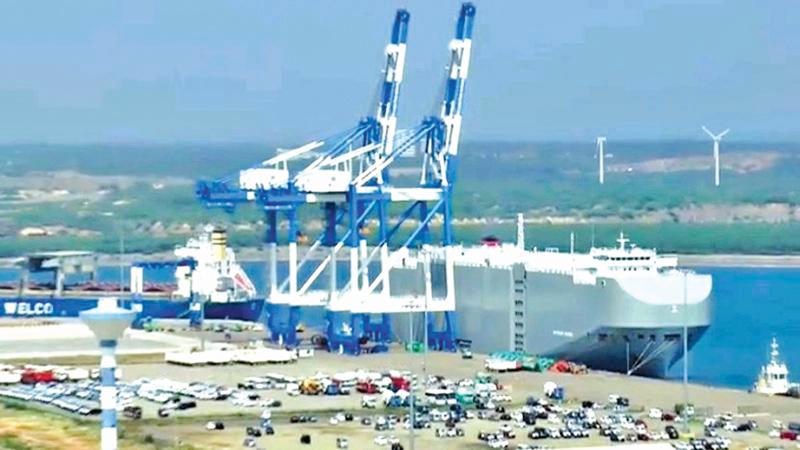
Sri Lanka hasn’t the luxury of wasting time any longer in transforming its ports and shipping industry to be a global port operator when others in the region are progressing in leaps and bounds, ports and shipping experts said at a conference in Colombo last week.
“We need to take a cue from some of the ports in our neighbourhood and get going faster if not we will be doomed,” a panellist at the forum said.
Sri Lanka Ports Authority (SLPA) Chairman Dr Parakrama Dissanayake looking disgruntled over the slow pace at which reforms in the ports sector had taken place over the years, said either the industry or governments have failed to establish a transhipment hub even after 40 years of establishing ports and shipping in the country.
“We need to translate talk into action. There is power in branding. Look at Apple, Google and Amazon. Labeling matters a lot.
I do not know how we use the word hub but it is used to refer to the maritime hub, transhipment hub, shipping hub and naval hub. Branding needs the right product and someone needs to promote it,” the SLPA chief said.
Sri Lanka has not had a promotional arm for the maritime industry similar to the tourism promotion bureau to promote the industry. The call to set up a maritime promotion bureau is timely when the country aims at becoming a transhipment hub for global shipping.
“This has got to be done by the government and not by the private sector,” Dr Dissanayake said.
The SLPA chief referred to the some of the positive moves in the country’s ports and shipping industry such as offshore port management by Sri Lankan companies.
“We have seen Sri Lankan companies going into port management outside the country and within the country. Look at what has happened to Galle. The maritime industry handles around 8,000 ships a year in Galle. This is not taken up by entrepreneurs.
The extension of the Panama Canal which out of the 19 round trips had nine sailings out of the canal in 2017. This is posing a huge challenge to the region,” Dr Dissanayake said.
He also cautioned the emergence of mega shipping alliances posing a threat to space and controlling shores. Eventually, we will have three to four individual shipping lines operating ports.
“A ship owner once told me that he would give me one year to join. If not good luck,” Dr Dissanayake said.
Ports and terminals are facing unprecedented challenges due to the deployment of larger container ships, as carriers look for economies of scale leading to the formation of larger carrier alliances to fill the ships. Larger ships create pressure for ports in terms of the need for deeper water, larger cranes and longer berths.
“The FDI coming from Hambantota amounting to US$ 1.2 billion and the ports transhipment volume recording 220.4 percent growth in January this year and JCT with no political interference recording 28.1 percent growth in January 2018 is commendable,” Dr Dissanayake said.
Industry experts also called for more focus on expanding the manufacturing footprint, building soft infrastructure, improving the ease of doing business and the ranking of the country. Currently, Sri Lanka is ranked 118 while Mauritius was ranked 25 and Rwanda 41.
Sri Lanka is ranked at 80, lagging behind India - 35 and Pakistan 68 in the logistics performance index.
